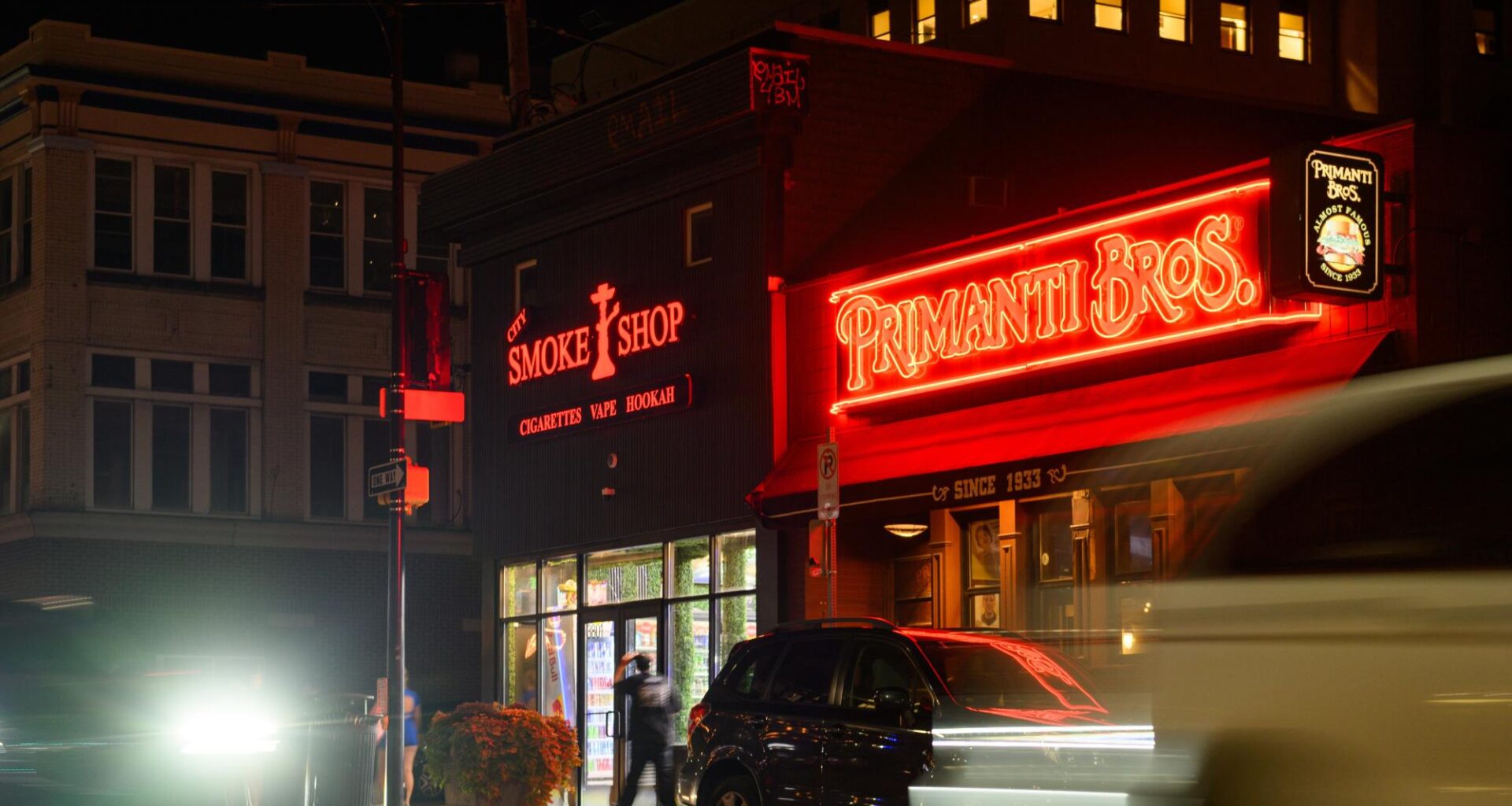Newly proposed restrictions on vape shops in Pittsburgh could prevent future storefronts from opening in Oakland.
City council members, Councilman Bobby Wilson of District 1, recently introduced new legislation regulating the location, operating hours and security of vape products across stores in Pittsburgh. The bill is intended to reduce the visibility of vape products in areas frequented by children and adolescents.
The proposed legislation establishes a new zoning category called “Restricted Personal Goods Retail.” The legislation would prohibit businesses in this category from being located within 1,500 feet of elementary or secondary schools, licensed day care facilities, religious institutions, public parks or playgrounds, or another Restricted Personal Goods Retail establishment.
The legislation further aims to prevent shops from operating between the hours of 11 p.m. and 9 a.m. Under the proposal, products must also be kept behind a counter or in a locked display case.
Over eight smoke shops are located in the Oakland area alone, including two shops on Forbes Avenue and one on Fifth Avenue. The number of stores selling vape products has boomed over the years, and many of them market their products to younger demographics.
The Oakland area is home to multiple private and public high schools as well as three major universities, which, according to some shop owners, makes these vape businesses thrive during the school year.
Moses Wasel, owner of Oakland Tobacco Shop, said his business sees a massive increase in customers at the start of the school year.
“Probably over 50% of our business is students. They play a big role when it comes to our sales,” Wasel said.
Morgan Martin, a legislative aide to Councilman Wilson, said the bill is still in progress and must undergo several procedural steps before it can be enacted. On Oct. 8, the bill was taken to the Standing Committees Meeting and is currently on hold until further action.
“After discussion [at the Standing Committees Meeting], it will be sent to the Planning Commission for a public hearing, returned to Council with a recommendation, then proceed to a Council public hearing and final vote,” Martin said.
If passed, Martin emphasized the potential benefits of reducing children’s exposure to addictive products by limiting the presence of vape shops near sensitive community spaces.
“This legislation is designed to address the deliberate marketing of vape products to children, which normalizes vaping at a young age and puts their health at risk,” Martin said.
Although the bill targets future locations and regulations of vape shops, it will not shut down or relocate any current businesses.
“Existing businesses would be grandfathered in, meaning no current vape shops would be required to close,” Martin said.
Wasel expressed concern that the bill does not appear to address the underlying cause of underage access to vapes. Wasel said he believes the responsibility begins at home, with parents educating their children on the dangers of such products — not just from vape shops, but also from liquor stores and gas stations.
“First it was cigarettes, now it is vapes. It has always been alcohol, too. There are always going to be those issues, but there must be regulations,” Wasel said. “When it comes to teens and kids, parents must do their part. That is number one.”
As a business owner, Wasel also emphasized the importance of ethical practices within the retail industry. He believes owners have a responsibility to know what they are selling and to ensure that products are sold responsibly.
“I believe the businesses must do their part. They should always check IDs, and they have a sign saying what the dangers are of what they are selling.” Wasel said.
Wasel also said the restrictions alone will not eliminate access to vape products among underage individuals — and that the blame should not rest solely on business owners.
“[Underage buyers] are still going to get [vapes],” Wasel said. “Do not put everything on the business. [Owners] still have kids to feed, too.”
Some students on campus agree that vaping has become an issue, particularly in terms of how easily accessible these products are. Stella Abrams, a senior biology major, acknowledged the seriousness of the issue but also recognized the difficulty in enforcement.
“When it comes to underage purchasing, [the bill] does sound like a really great thing, but I am not sure how well it would work,” Abrams said. “I am sure there is evidence that supports that [the bill] would work, but I know that kids will always find a way around things like this.”
Caitlyn Chen, a sophomore biology major, said the issue of vape exposure extends beyond Pittsburgh and reflects broader systemic concerns.
“I do not think people seem to care too much about the issue, especially with the health care in our country,” Chen said. “I truly think that they do not care about young children and their exposure. It is more about profiting off [buyers].”
With growing concern over the effects of vaping — particularly among teens — some students see the bill as a positive step forward. Aashi Sheth, a sophomore biology major at Pitt, highlighted the importance of preventative measures and the role of business owners in protecting community health.
“Over the past couple of years, we have seen how younger generations are starting to have access to [vapes] early on and how dangerous and addictive they can be,” Sheth said. “I feel that [current] business owners should see how important this [bill] is.”

